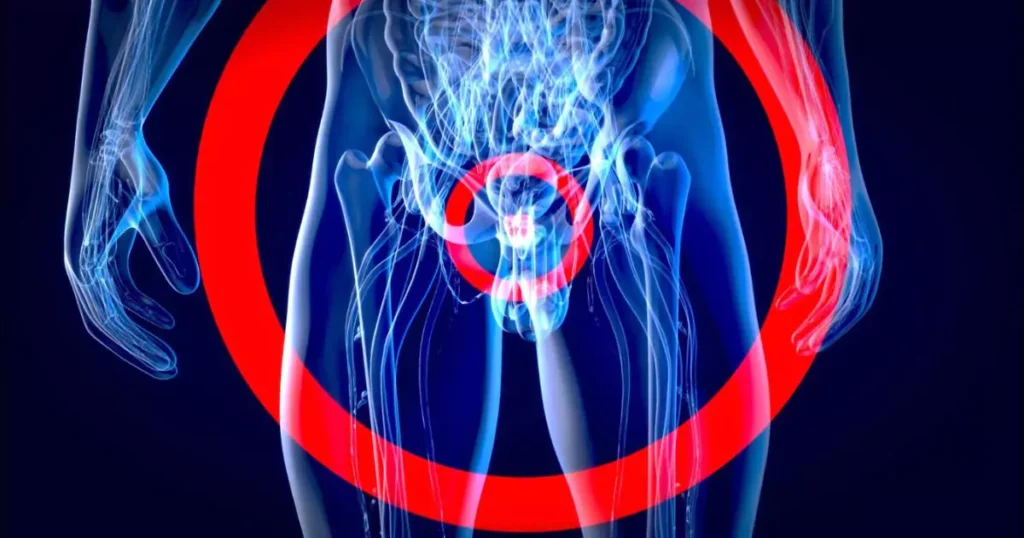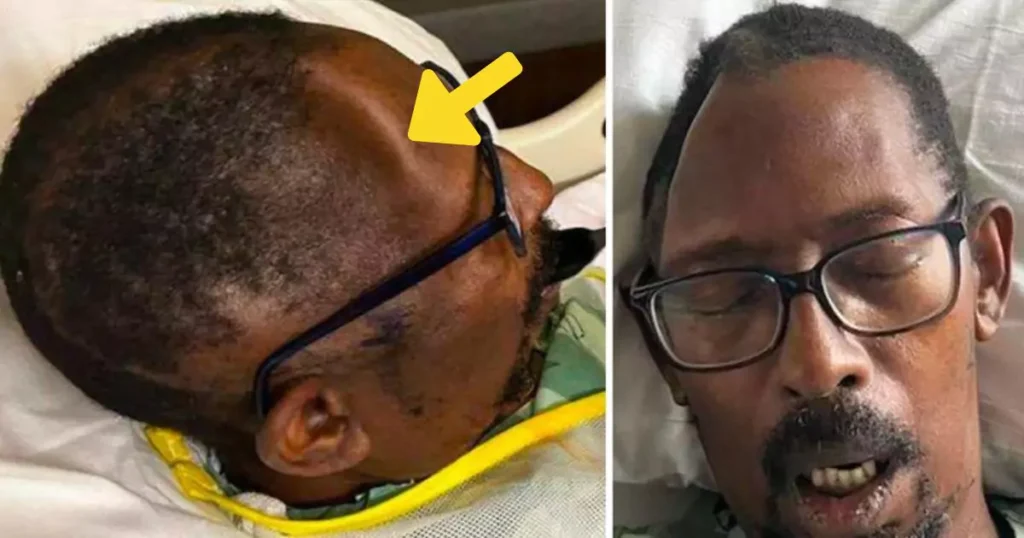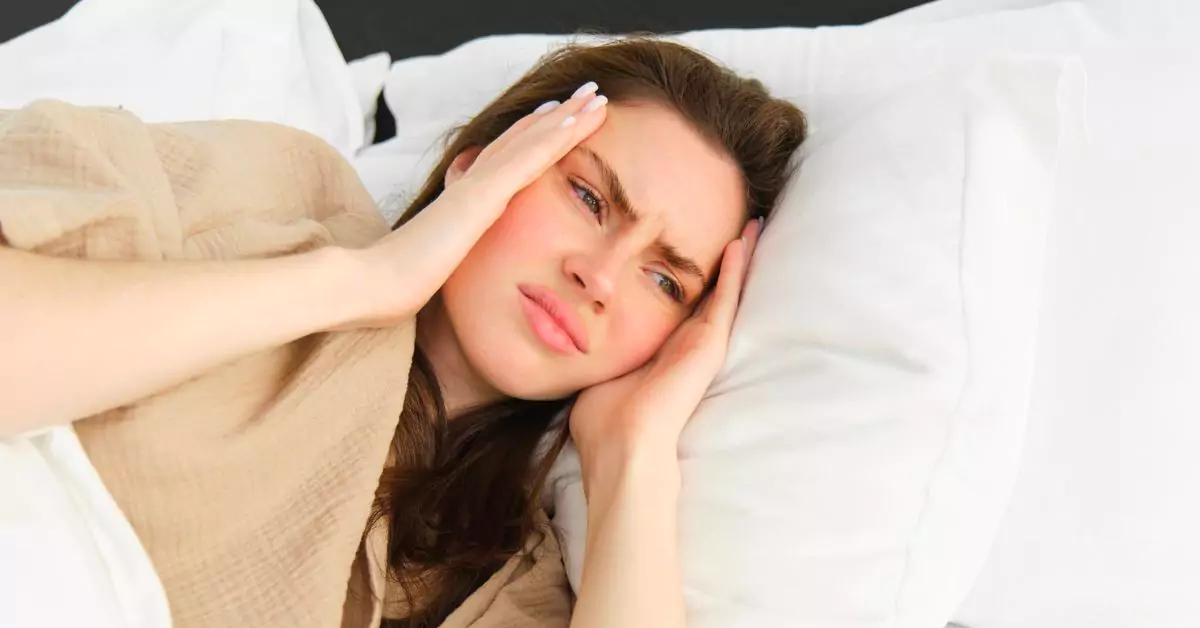
Ever wake up feeling tired even after a long sleep? This could be because you’re not getting deep, restful sleep. Dr. Jason Lin from Taiwan’s Lin Shin Hospital shares seven tips to help you sleep better. Sleep is an essential component of our overall health and well-being, yet many people struggle with achieving restful and rejuvenating sleep. In today’s fast-paced world, poor sleep has become a common problem, affecting millions of individuals worldwide. The reasons for this widespread issue are varied and can range from lifestyle choices and environmental factors to physical health conditions and psychological stressors.
Understanding the underlying causes of poor sleep is crucial in addressing this challenge effectively. This comprehensive overview aims to shed light on the common and often overlooked factors that contribute to poor sleep, providing insights and strategies for overcoming these obstacles to achieve the deep, restorative sleep that is vital for our physical and mental health. By exploring the intricate relationship between our daily habits, health conditions, and sleep quality, we can embark on a journey towards improved sleep and, consequently, a better quality of life.
Understanding Sleep
First, let’s understand what good sleep is. Sleep has two main stages: Non-Rapid Eye Movement (NREM) and Rapid Eye Movement (REM). NREM has three phases: light sleep, deeper sleep, and the deepest sleep, where it’s hard to wake up. REM is where we dream a lot. A healthy sleep cycle moves between these stages.
Non-Rapid Eye Movement (NREM) Sleep
NREM sleep is the first phase of the sleep cycle and is divided into three stages:
- Stage 1 (N1): This is the transition from wakefulness to sleep and lasts for about 5 to 10 minutes. During this stage, you are in very light sleep and can be easily awakened. Your muscle activity slows down, and your eyes move slowly.
- Stage 2 (N2): This is a period of light sleep before you enter deeper sleep. It lasts for about 20 to 25 minutes. Your heart rate slows, body temperature drops, and eye movements stop. This stage prepares your body for deep sleep.
- Stage 3 (N3): Often referred to as deep NREM sleep, this stage is crucial for feeling refreshed in the morning. It usually begins 35 to 45 minutes after falling asleep. In this stage, your body repairs tissues, builds bone and muscle and strengthens the immune system. Brain waves are slow during this stage, and it’s difficult to be awakened.
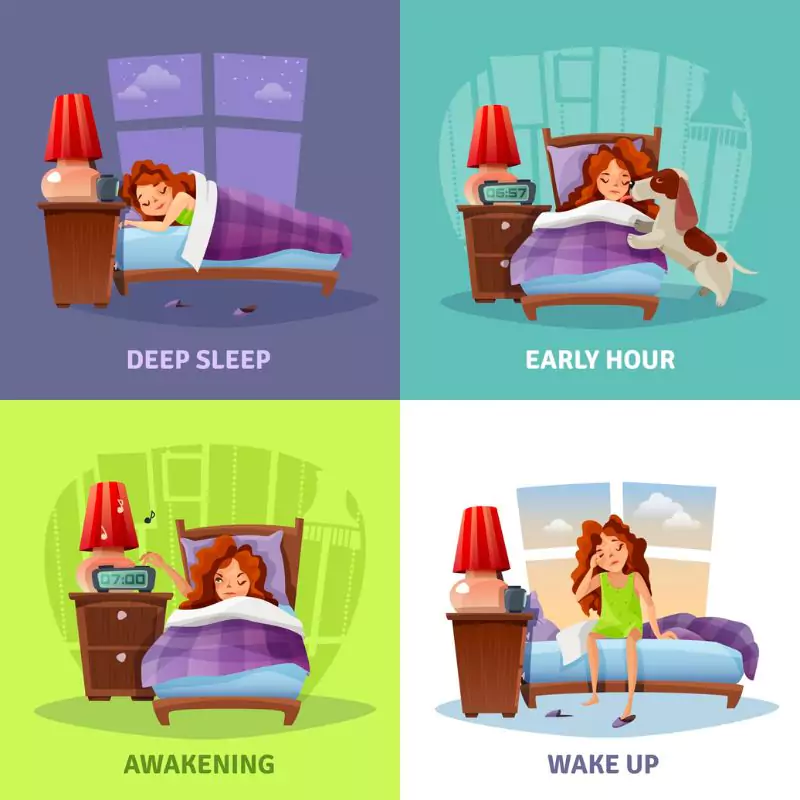
Rapid Eye Movement (REM) Sleep
REM sleep occurs about 90 minutes after falling asleep and is the dream phase of sleep. It has several key characteristics:
- Eye Movement: Despite being asleep, your eyes move rapidly in various directions, hence the name Rapid Eye Movement sleep.
- Brain Activity: Your brain becomes more active during REM sleep, similar to when you’re awake. This is why most dreaming occurs during this stage.
- Muscle Atonia: Your muscles become temporarily paralyzed during REM sleep, possibly to prevent you from acting out your dreams.
- Increased Breathing and Heart Rate: Your breathing rate and heart rate can become irregular and speed up during this phase.
- Important for Cognitive Functions: REM sleep is essential for learning, memory processing, and mood regulation.
The Sleep Cycle
A complete sleep cycle typically lasts about 90 to 120 minutes, starting with NREM sleep and ending with REM sleep. Throughout the night, these cycles repeat, with REM phases getting longer, especially in the second half of the night.
Importance of Both NREM and REM Sleep
Both NREM and REM stages are crucial for a restorative sleep experience. NREM sleep is vital for physical recovery and growth, while REM sleep is important for mental and emotional well-being. Disruptions in either can affect your health, mood, and cognitive abilities.
Understanding these phases can help in identifying sleep issues and improving sleep quality. If you’re experiencing sleep problems, it’s essential to consider both NREM and REM sleep and how they may be affected.
Why Deep Sleep Matters
Deep sleep helps your body in many ways. It helps grow and repair your body, cleans out brain toxins, helps organize your memories, and controls your body temperature and blood pressure. Not getting enough deep sleep can lead to health problems like high blood pressure and even heart disease.
Common Causes of Poor Sleep
Dr. Lin points out that stress, physical discomfort, and disturbed sleep schedules can mess up your sleep. If you can’t sleep well for a long time, it might become a bigger problem.
- Stress and Anxiety: Stressful lifestyles and anxiety can lead to a restless mind, making it difficult to fall asleep or stay asleep. Worrying or overthinking at bedtime can disrupt your ability to relax into a deep sleep.
- Poor Sleep Environment: A sleep environment that’s not conducive to rest, such as a room that’s too bright, noisy, or at an uncomfortable temperature, can prevent quality sleep.
- Irregular Sleep Schedule: Inconsistent sleep and wake times can disrupt your body’s internal clock, or circadian rhythm, leading to difficulty in falling asleep at the desired time.
- Physical Health Issues: Conditions like chronic pain, acid reflux, asthma, sleep apnea, and restless leg syndrome can interrupt sleep.
- Mental Health Disorders: Mental health issues like depression and anxiety can negatively impact sleep patterns.
- Lifestyle Factors: Consuming caffeine or alcohol close to bedtime, heavy meals late in the evening, and lack of physical activity can all contribute to poor sleep.
- Overuse of Electronic Devices: Exposure to blue light from screens before bedtime can interfere with the production of melatonin, the hormone that regulates sleep.
Additional Factors Affecting Sleep
- Medications: Certain medications can interfere with sleep as a side effect.
- Age-Related Changes: As people age, they often experience changes in sleep patterns, such as becoming lighter sleepers or waking up earlier.
- Jet Lag and Shift Work: Traveling across time zones or working irregular hours can disrupt your body’s sleep-wake cycle.
- Sleep Disorders: Conditions like insomnia, sleep apnea, and narcolepsy directly affect sleep quality and quantity.
- Hormonal Changes: Fluctuations in hormones, such as during menstruation, pregnancy, or menopause, can affect sleep.
- Psychological Stressors: Significant life changes or traumatic events can lead to temporary sleep disturbances.
- Environmental Factors: Extreme temperatures, allergens, or a sleeping surface that’s not comfortable can impact sleep.
- Genetic Factors: Some individuals may be genetically predisposed to certain sleep disorders.
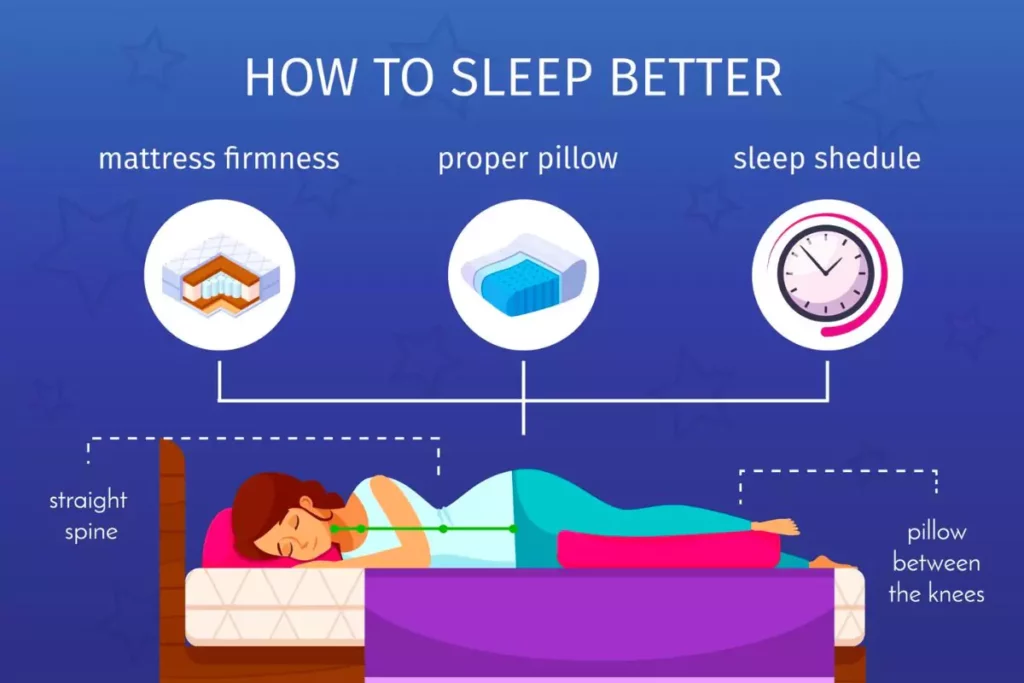
7 Tips for Better Sleep
- Fix Your Sleep Schedule: Try to get sunlight during the day and avoid long naps. Aim to sleep between 10 p.m. and 11 p.m. Keep track of your sleep in a diary.
- Make a Good Sleep Environment: Keep your room dark, quiet, and cool. If you have tinnitus, listening to white noise like rain sounds can help.
- Limit Electronics Before Bed: Blue light from screens can disturb your sleep cycle. Avoid phones and e-books an hour before bed.
- Watch Your Diet and Caffeine Intake: Don’t eat too late and avoid caffeine in the evening. Eating right can improve sleep.
- Exercise Regularly: Evening walks are good, but avoid hard workouts close to bedtime.
- Meditate and Breathe: Take time to relax your mind before bed. Meditation and deep breathing can help.
- Seek Professional Help if Needed: If sleep problems persist, it might be time to consult a doctor.
In Conclusion
Getting deep, restorative sleep is vital for your health. By following these expert tips, you can improve your sleep quality and wake up feeling refreshed and ready for the day!
Images By: Freepik


































